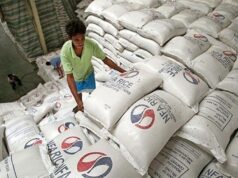Home prices jump in Q3 amid robust demand

By Luz Wendy T. Noble, Reporter
THIRD-QUARTER residential property prices rose by its fastest pace since the second quarter of 2020, thanks to an uptick in demand for condominium units and townhouses.
The Bangko Sentral ng Pilipinas (BSP) said the Residential Real Estate Price Index (RREPI) jumped by 6.3% year on year in the third quarter, following two consecutive quarters of annual decline.
This was the fastest growth since the 26.6% seen in the April to June period last year amid the strict lockdown to curb the coronavirus pandemic.
The central bank attributed the higher home prices partly to “stronger consumer demand,” especially for condominium units and townhouses.
“This is consistent with the outcome of the third-quarter Consumer Expectations Survey, which showed a higher percentage of consumers preferring to buy real estate property in the reference quarter amid signs of economic recovery,” the BSP said in a statement.
Nationwide home prices also inched up by 0.7% quarter on quarter.
The rise in home prices in the third quarter reflects the recovery in the property market, said Colliers Philippines Associate Director Joey Roi H. Bondoc.
“Pent-up demand for condominium units is fueling take-up for vertical projects,” Mr. Bondoc said in an e-mail.
He added that remittance inflows are driving demand for both landed homes and condominium units across the country.
JLL Philippines Research Head Janlo C. de los Reyes said buyers may have taken advantage of promotional offerings by developers.
“The favorable monthly amortization and discounts (in select projects) offered by developers helped buoy residential sales and push prices in general,” Mr. De los Reyes said.
The RREPI takes into account the average change in home prices across building types and locations. This provides the BSP guidance into the property market where bank exposure is regulated.
Condominium unit prices increased by 13.6% year on year in the third quarter, reversing the 15% drop a year ago. This was the fastest increase since the 30.1% in the second quarter of 2020.
Bank of the Philippine Islands (BPI) Lead Economist Emilio S. Neri, Jr. said the slowdown in demand from employees of Philippine Offshore Gaming Operators (POGO) should have translated to “meaningful price deflation” for condominiums, but instead prices have gone up.
Prices of townhomes surged by 37.1% in the third quarter, the quickest rise since the series started in 2016.
“Townhouses are fast becoming exclusively for the rich [as they are] up 37.1% year on year, just as wages fall and unemployment remains elevated,” Mr. Neri said.
On the other hand, prices of single detached/attached homes and duplexes dropped by 4.2% and 0.2%, respectively.
In Metro Manila, home prices increased by 11.4%, ending four straight quarters of annual contraction. Prices of townhomes and condominium units jumped by 26.4% and 13.4%, respectively, while prices of single detached/attached houses fell by 8.8%.
In the provinces, average home prices rose by 4.9%, driven by higher prices in townhomes (46.2%), duplexes (13.8%) and condominium units (13.2%). On the other hand, prices of single detached/attached houses declined by 3.8%.
The third quarter saw granted home loans surge by 51.1% year on year and by 32.3% quarter on quarter. New housing units accounted for 84.7% of the residential real estate loans.
Colliers’ Mr. Bondoc said improving economic conditions and easing restrictions may continue to fuel demand for residential properties next year.
On the other hand, JLL’s Mr. De los Reyes said housing demand may decline in the next quarters “as the post-holiday COVID landscape and the upcoming national elections may see waning buyer and investor sentiment in the short term.”
BPI’s Mr. Neri said the low interest rates may have partly contributed to the continued rise in home prices.
“For financial stability reasons, the Monetary Board may have to consider unwinding some of its emergency policy settings, especially the protracted negative real policy rate environment,” Mr. Neri said.
Earlier this month, the central bank maintained the key policy rates at record lows.




